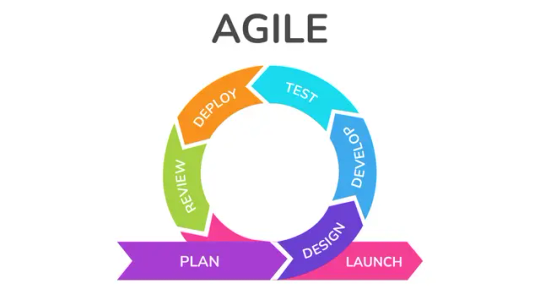#workflowproess
Explore tagged Tumblr posts
Text
Agile at Work Transforming Workflows for Greater Flexibility
In today's rapidly evolving business landscape, agility has become a cornerstone of success. Organizations must adapt quickly to changing market conditions, customer preferences, and technological advancements to remain competitive. Agile methodologies, initially popularized in software development, have now permeated various industries, offering a flexible framework for transforming workflows and driving greater adaptability. In this blog, we delve into the concept of Agile at work and how it transforms workflows for greater flexibility and efficiency.

Understanding Agile Methodologies
Agile methodologies represent a set of principles and practices that prioritize flexibility, collaboration, and adaptability in project management and workflow processes. Unlike traditional linear approaches, Agile emphasizes iterative development, customer feedback, and continuous improvement. Agile methodologies enable teams to respond rapidly to changing requirements and deliver value incrementally, enhancing customer satisfaction and driving innovation.
The Core Principles of Agile
At the heart of Agile methodologies are four core principles outlined in the Agile Manifesto:
Individuals and interactions over processes and tools
Working software over comprehensive documentation
Customer collaboration over contract negotiation
Responding to change over following a plan
These principles emphasize the importance of people-centric approaches, iterative development, customer focus, and adaptability in achieving project success and driving business value.
Transforming Workflows with Agile
Agile methodologies offer a transformative approach to workflow management, enabling organizations to achieve greater flexibility, efficiency, and responsiveness. By breaking down complex projects into smaller, manageable iterations or sprints, Agile teams can prioritize work, adapt to changing priorities, and deliver value more quickly. Daily stand-up meetings, sprint planning sessions, and regular retrospectives facilitate communication, collaboration, and alignment among team members, driving greater efficiency and transparency.
Embracing Iterative Development
One of the hallmarks of Agile methodologies is iterative development. Instead of attempting to define all requirements upfront, Agile teams focus on delivering small, incremental releases of a product or project. These iterative cycles allow for rapid feedback from stakeholders, enabling teams to course-correct, refine their approach, and deliver value iteratively. By embracing iterative development, organizations can minimize risk, address uncertainties, and adapt to evolving requirements more effectively.
Fostering a Culture of Collaboration
Agile methodologies foster a culture of collaboration and empowerment within teams. Cross-functional teams are empowered to make decisions, share knowledge, and take ownership of project outcomes. By promoting open communication, trust, and accountability, Agile teams can leverage the diverse skills and perspectives of team members to solve complex problems and drive innovation. Regular feedback loops and retrospectives enable teams to reflect on their processes, identify areas for improvement, and drive continuous learning and growth.
Embracing Change and Adaptability
One of the key tenets of Agile methodologies is the ability to embrace change and adaptability. Agile teams prioritize responding to change over following a rigid plan, enabling them to pivot quickly in response to new information or emerging requirements. By fostering a mindset of adaptability, resilience, and experimentation, organizations can navigate uncertainty and complexity with confidence, seizing opportunities and mitigating risks in the process.
youtube
Conclusion
In conclusion, Agile methodologies offer a transformative approach to workflow management, enabling organizations to achieve greater flexibility, efficiency, and adaptability in today's dynamic business environment. By embracing Agile principles and practices, organizations can transform their workflows, drive collaboration, and deliver value to customers more effectively. As organizations continue to navigate the complexities of modern business operations, Agile methodologies provide a proven framework for driving innovation, responsiveness, and success in an ever-changing world.
SITES WE SUPPORT
Workflow technology process - Wix
SOCIAL LINKS Facebook Twitter LinkedIn
0 notes